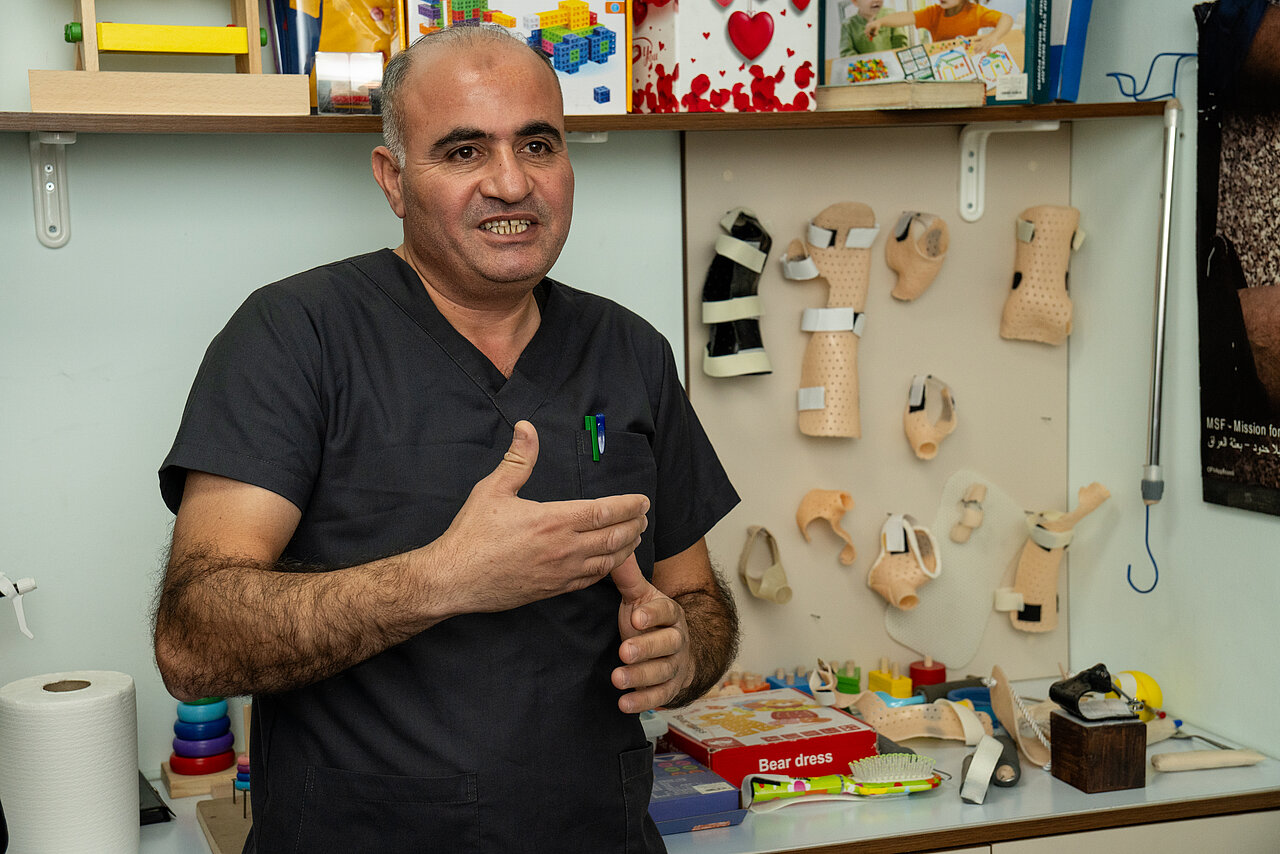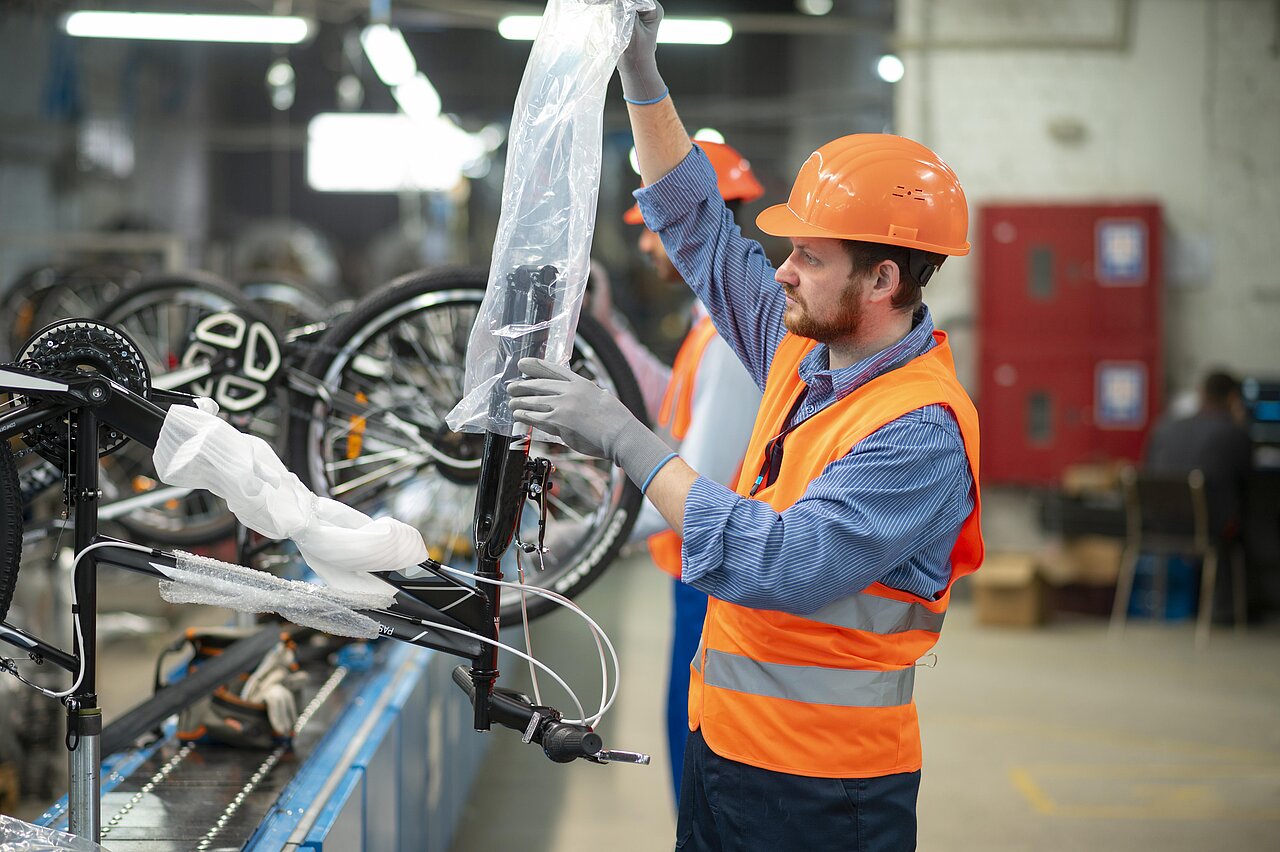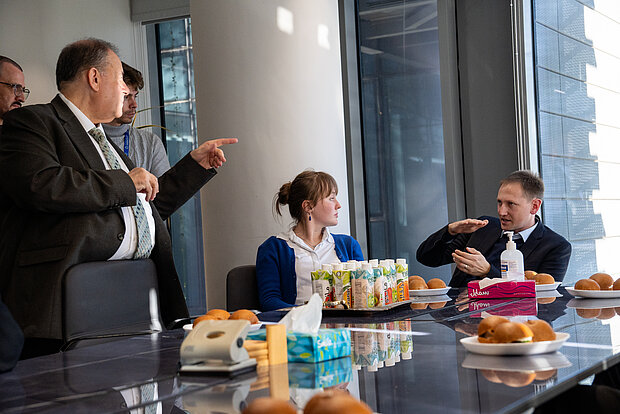Ready for an exciting, future-proof career?
A transnational bachelor's degree in Advanced Materials Engineering opens up a wide range of career opportunities in an essential sector which is crucial for a sustainable future.
Be at the forefront of a technologically driven yet sustainable world. Become an engineer in the plastic related industry and work as an ambassador between Arab producing and exporting countries and importing countries around the world.
The programme is accredited among others by the Jordanian Engineering Association.
Graduates can pursue dynamic and well-paid careers across a wide range of industries and specializations. Explore the opportunities below to know more!
Plastics - the future for people and the environment
Plastics are essential to a sustainable future - but they need to be used and recycled intelligently. Here are some key facts about the important role plastics and their derivates play in a green future.
- Plastics are 7 times lighter than steel. This significantly reduces energy consumption in transport - half of today's aeroplanes are already made of plastic!
- Plastics are excellent insulators and reduce energy consumption in housing and heating.
- Modern medicine, security technologies, wind power generation and many types of sport would be inconceivable without high-tech polymers.
- Even plastic packaging - the focus of today's discussion - is indispensable: it makes food last longer, contributes to people's food security and, thanks to its light weight, can be transported more ‘cleanly’.
It is important to promote disposal and recycling, biodegradability and production from renewable resources (or directly from CO2!), so that plastics form a sustainable cycle and do not end up in the environment!

Photo by: Noah-Manuel Ries




Labour demand
The global demand for skilled professionals, especially in Arab and European countries, is already high and will remain so in the future. Even during economic downturns, topics like weight reduction, recycling, and environmental sustainability remain at the forefront, ensuring excellent career prospects for our graduates!
Plastics and Elastomer Engineering is a driving force behind key technologies shaping the present and the future - from mobility and healthcare to leisure. The need for engineers in this field is exceptionally high, offering graduates outstanding career opportunities and long-term job security. Moreover, the gap between the demand for skilled professionals and the available workforce continues to grow, making this a promising and secure career path and ensuring excellent prospects. In Jordan, the plastic and rubber industries are also significant, with over 300 companies. The Jordanian industry is also in high need of engineers who are experts across the entire production process. This includes not only the efficient management of machinery and production lines, but also the design of innovative products in R&D. Enrol now in our programme, acquire these comprehensive skills which are in high demand, and become part of the innovation and growth of this long-standing sector!
Our programme has a proven track record of success for its graduates due to the uniqueness of the degree. It is the only one in Germany that integrates modern elastomer technology as a core component. Also, as graduates of Universities of Applied Sciences, their practice-oriented education is highly valued in the industry. After graduation, you can join our Alumni club with over 300 members working in different fields around Germany.

Expected salary
Salaries can vary depending on the sector, level of studies and the experience of the Polymer and Elastomer Engineer. According to the Association of German Engineers (VDI), starting salaries in engineering are on average between 51,000 and 61,000 euros per year. In large companies and especially in the plastics industry, salaries can be significantly higher starting at 72,000 euros per year.
Possible fields and sectors
Graduates have a wide range of opportunities for further progression.
These include opportunities in the field of energy technology, mechanical engineering, plant and process equipment development, process engineering, energy economics, and sustainable resource management.
With the close integration of general engineering skills and competencies in the field of plastics and elastomer industries, graduates of the transnational Advanced Materials Engineering programme are well-prepared for the industry. The programme provides a sustainable and future-proof foundation for further academic development. As a plastics and elastomer engineer, graduates will be able to work in a wide variety of fields and areas, as for example:
- Plastics and elastomer manufacturing
- Vehicle manufacturing and shipbuilding
- Mechanical and apparatus engineering
- Environmental protection
- Chemical synthesis
- Medical engineering
- Packaging industry
- Polymer analytics
- Sports and leisure equipment industry
and much more!




